What Can You Not Bring Back From Vietnam?
Vietnam, with its vibrant culture, stunning landscapes, and rich traditions, has become a favorite destination for travelers worldwide. While exploring the wonderful country, it’s tempting to bring back unique souvenirs or gifts that capture its essence. However, understanding Vietnam’s customs regulations is essential to ensure a smooth journey home. Certain items are prohibited, while others require careful consideration or prior authorization. In this article, we will explore What Can You Not Bring Back from Vietnam, ensuring a hassle-free and enjoyable travel experience.
Vietnam Custom Regulations
As Vietnam continues to grow in popularity as a travel destination, understanding the country’s customs regulations is essential for a smooth and hassle-free experience. Travelers should be aware of what they are allowed to bring into and out of Vietnam, as well as the items that are prohibited or restricted. By adhering to these guidelines, you can avoid complications and enjoy a worry-free visit.
Before entering Vietnam, travelers must have a valid passport and, if required, a visa. Some nationalities, including those from ASEAN countries and certain European nations, benefit from visa exemptions under Vietnamese regulations. Check the latest visa policies to confirm if your country is eligible for this exemption.
It’s also worth noting that customs procedures in Vietnam are relatively modernized and streamlined. While entry by air is typically quicker than by land or sea, travelers should always prepare by reviewing the customs requirements in advance.

Upon Entry into Vietnam
Upon arrival in Vietnam, travelers should be prepared to declare specific items to customs officials when required. A single declaration form is used for both entry and exit, simplifying the process. The following items are among those that must be declared:
Electronics: Cameras, recording devices, and other electronic equipment not intended for personal use.
Jewelry and Precious Metals: Items such as gold, gems, or other valuables beyond personal use.
Tax-Exempt Goods: Goods exceeding the duty-free allowance.
Medicines: Pharmaceuticals valued at more than $30.
Currency: Foreign currency exceeding $7,000 (USD or equivalent) or local currency over VND 15 million.
Failure to declare these items can lead to fines or confiscation. Travelers should retain receipts and documentation for high-value goods to avoid complications.
What you Can Bring Back from Vietnam
Vietnam permits travelers to bring certain items into the country duty-free, provided they stay within the following limits:
Tobacco: Up to 200 cigarettes, 20 cigars, or 250 grams of shredded tobacco.
Alcohol: 1.5 liters of beverages with an alcohol content over 20%, 2 liters of beverages with less than 22% alcohol, or 3 liters of beer.
Food and Beverages: Up to 5 kilograms of tea and 3 kilograms of coffee.
Exceeding these limits will result in additional taxes or fees. It’s advisable to keep purchases within these allowances to avoid delays at customs.

What Can You not Bring Back from Vietnam?
Wildlife and Animal Products
Vietnam takes the protection of its biodiversity seriously. Both local laws and international agreements like the Convention on International Trade in Endangered Species (CITES) strictly prohibit the export of certain animal and wildlife products.
Endangered species and their by-products: Items such as ivory, tiger skins, rhino horns, pangolin scales, and other wildlife trophies are strictly forbidden. The hunting, trading, or possession of products derived from these species is illegal. Violators face severe penalties, including international prosecution in some cases.
Marine animal products: Coral jewelry and artifacts made from the shells of endangered marine animals, such as sea turtles, are also banned. These items are often sold as souvenirs in local markets but are illegal to export.
Traditional medicines containing animal derivatives: Remedies using ingredients like pangolin scales, turtle shells, or animal bones are banned due to their ecological impact. Transporting these products is illegal and unethical, contributing to the decline of endangered species.
Animal-Derived Food Products: Exporting raw or processed animal-derived food, including meat, dairy products, and certain seafood, is generally restricted unless specific permits are obtained.
Plants
As with animals, Vietnam is home to a unique and varied flora, some species of which are threatened. The export of certain plants, particularly those on the red list of endangered species, is prohibited. The Vietnamese authorities take the protection of the country's biodiversity very seriously, and violations of these laws can result in severe penalties.

Drugs
Vietnam enforces some of the strictest drug laws in the world, with severe penalties, including life imprisonment or the death penalty, for drug-related offenses. Travelers must exercise extreme caution and avoid carrying any illegal substances or controlled drugs out of Vietnam.
It’s important to note that drugs legal in other countries, such as cannabis, are entirely prohibited in Vietnam. Even prescription medicines containing substances considered drugs in Vietnam are subject to regulation. Always verify the legality of your medicines with Vietnamese customs before traveling.
Rules for Medicines Containing Controlled Substances
Travelers needing to carry medication containing narcotics or psychotropic substances must comply with the following regulations:
For Narcotic Drugs: A maximum dose for 7 days, as per a doctor’s prescription.
For Psychotropic Drugs and Precursors: A maximum dose for 10 days, as prescribed.
For Combined Drugs:A maximum dose for 30 days if the drugs contain narcotic or psychotropic active ingredients or are listed as toxic or banned substances.
Travelers exceeding these limits must obtain an official export license. It is advisable to carry prescriptions and supporting documents for any medication, ensuring they are properly labeled and match the quantities prescribed.

Cash
Travelers are allowed to carry cash in both foreign currencies and Vietnamese dong, but there are strict limits:
Foreign Currency or Vietnamese Dong: Cash exceeding VND 15,000,000 (or the equivalent in foreign currencies) must be declared.
Negotiable Instruments: Drafts, checks, and similar items exceeding this value must also be declared.
Failure to declare large amounts of cash or negotiable instruments can lead to confiscation or penalties.
Carrying Gold and Precious Metals
Gold and precious metals are also subject to strict regulations. Travelers leaving Vietnam with significant amounts must adhere to the following rules:
Gold Jewelry or Fine Art Gold: Passengers carrying over 300 grams of gold jewelry or fine art gold articles must declare them at customs. For travelers using border laissez-passers or identity cards, gold jewelry worn for personal use exceeding 300 grams must also be declared.
Material or Ingot Gold: Vietnamese residents permanently residing in the country carrying material gold, ingot gold, or fine-art gold articles exceeding 300 grams are required to declare these items.
Jewelry and Gemstones: Precious stones such as diamonds, rubies, sapphires, and emeralds, as well as other gemstones valued at VND 300,000,000 or more, must be declared at customs.
Religious and cultural objects
Vietnam’s rich cultural and historical heritage is safeguarded by strict laws to prevent the loss of national treasures. Religious and antique objects, such as statues, paintings, artifacts, and other items of historical value, cannot be taken out of the country without prior authorization from Vietnamese authorities.
This regulation is designed to combat cultural looting and ensure that Vietnam’s heritage is preserved for future generations. Even items that appear to be ordinary souvenirs may fall under these restrictions if they hold cultural or religious significance.
Avoid Purchasing Antiques: If you’re unsure whether an item qualifies as an antique or historical artifact, it’s best to refrain from buying it.
Request Documentation: When purchasing cultural items, ensure the seller provides proof of authenticity and documentation showing the item is cleared for export.
Consult with Authorities: If in doubt, check with Vietnamese customs or the Ministry of Culture, Sports, and Tourism before purchasing religious or cultural objects.

Firearms
Vietnam strictly prohibits the export of firearms, ammunition, and other dangerous objects. This includes traditional or collectible weapons such as handmade knives, swords, or daggers, even if they are sold as souvenirs or decorative items.
While Vietnam has a rich history of traditional weapons manufacturing, these items are often classified as controlled or prohibited for export. Attempting to take them out of the country without proper permits can lead to serious legal consequences.
Flammable or Explosive Items
Items like fireworks, explosives, and flammable substances are banned for export due to their potential risk to public safety. These restrictions apply regardless of whether the items are purchased for personal use or as souvenirs.
Even seemingly harmless items like sparklers or traditional firecrackers can fall under these prohibitions. Vietnam enforces these regulations rigorously to ensure safety during transport and prevent accidents.
Frequently Asked Questions
How Much Coffee Can I Bring Home from Vietnam?
Travelers are generally allowed to bring back up to 3 kilograms of coffee for personal use without needing to declare it. If you wish to transport a larger quantity, check the customs regulations of your home country to avoid restrictions or additional duties.

What drugs are illegal in Vietnam?
Vietnam has very strict drug laws, and all recreational drugs, including cannabis, heroin, cocaine, and methamphetamine, are illegal. Even prescription medicines containing substances considered controlled in Vietnam may be restricted. Always verify your medication against Vietnamese regulations before traveling.
Can I Bring Vitamins to Vietnam?
Yes, you can bring vitamins to Vietnam for personal use. However, they should be in reasonable quantities and properly labeled. If you are carrying a large amount, consider bringing a prescription or documentation to avoid potential issues with customs.
Vietnam Customs Food Restrictions
Bringing fresh food such as fruits, vegetables, or raw meat out of Vietnam is generally prohibited. However, processed, sealed, and commercially packaged foods like dried fruits, snacks, or spices are allowed. Ensure these items meet your home country's food import standards.
Vietnamese Snacks to Bring Home
Some of the best Vietnamese snacks to bring home include:
Bánh đậu xanh (Mung bean cakes): Sweet and crumbly treats.
Dried fruits: Mango, jackfruit, and banana are popular choices.
Vietnamese coffee: Known for its robust flavor, ideal for gifting.
Cashew nuts: A high-quality export product.
Instant noodle packs: Flavored with unique Vietnamese spices.

Best Gifts to Bring Back from Vietnam
Vietnam offers a variety of unique and memorable gifts, such as
Silk products: Scarves, ties, or ao dai (traditional dresses).
Lacquerware: Handcrafted trays, bowls, and decorations.
Ceramics: Traditional pottery from Bat Trang Village.
Vietnamese coffee and filters: A classic combination for coffee lovers.
Traditional conical hats (nón lá): Iconic and practical souvenirs.
Hand-embroidered items: Tablecloths, pillowcases, or wall art.
Conclusion
Knowing and understanding Vietnam's customs allowances is key to ensuring a smooth and hassle-free arrival in the country. By being well-informed about the allowances for products such as cigarettes, alcohol, and gifts, as well as the personal goods you can bring without incurring additional taxes, you can avoid unpleasant surprises at the airport. Remember to always check for updated regulations, pack smart, and have your documents ready. With these simple steps, you can enjoy your stay in Vietnam right from the start without worrying about customs. If you are planning a trip to Vietnam and would like more information or personalized assistance, Vietnam Original Travel is at your disposal to offer you a unique experience tailored to your needs.
>>> Top 10 Best Places To See Lotus Flowers In Vietnam
Send us your comments about : What Can You Not Bring Back From Vietnam?
Required fields *
You might also be interested
Travel ideas
Need some inspiration? Discover some of the best tours in Vietnam, which are highly appreciated by our clients. An excellent starting point to help you choose the right trip to Vietnam, Laos, Cambodia, Burma or Thailand, whether you are traveling alone, as a couple, as a family or with friends.
And because this trip is yours, feel free to customize it as you wish!
Vietnam Cambodia Itinerary 14 Days
Hanoi – Hoa Binh – Mai Chau – Ninh Binh – Halong bay – Hue - Danang – Hoian – Saigon – Ben Tre - Can Tho – Saigon - Siem Reap Angkor - Tonlé Sap - Siem Reap – Ta Prohm - Departure
Vietnam and Laos 14 days
Saigon - My Tho - Da Nang- Hoian – Hue - Hanoi - Halong Bay - Vientiane Luang Prabang - Pak Ou – Khuang Si - Luang Prabang – Departure
Honeymoon Tour Packages In Vietnam 12 Days
Saigon Arrival - City Tour – Mekong Delta – Danang – Hoian - by flight - Da Nang – Hanoi - by flight – Halong - overnight on junk – Departure
Authentic Hoang Su Phi Trekking Tours
Hoang Su Phi trekking tours take you to stunning terraces, meet few tourists, connect with locals and enjoy authentic culture.
The Best of Ha Giang Trekking Tours
Discover Ha Giang on trekking tours where you live local life, enjoy breathtaking views and escape the crowded routes.
Vietnam Itinerary 2 Weeks
Hanoi - Ninh Binh - Lao Cai - Sapa - Muong Hum market - Ha Long Bay - Hue - Danang - Hoi An - Saigon - Mekong Delta - Cai Rang floating market - Departure
Are you interested in this tour?






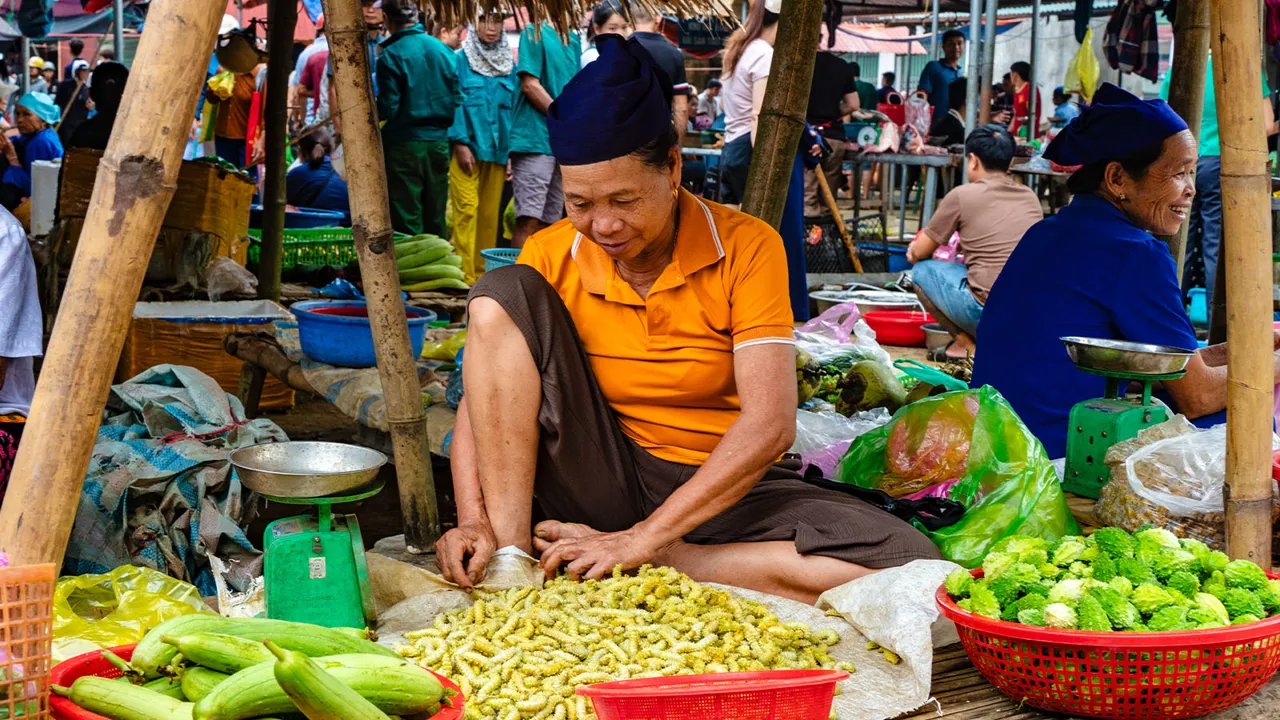
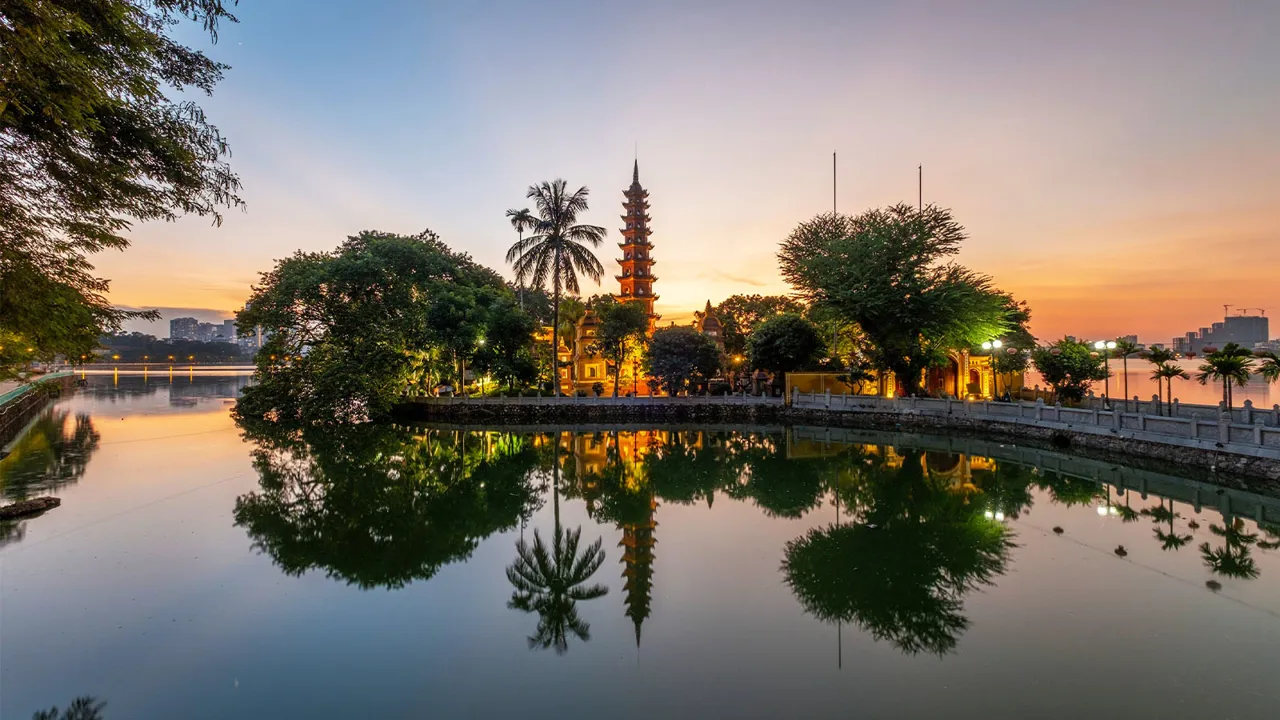


















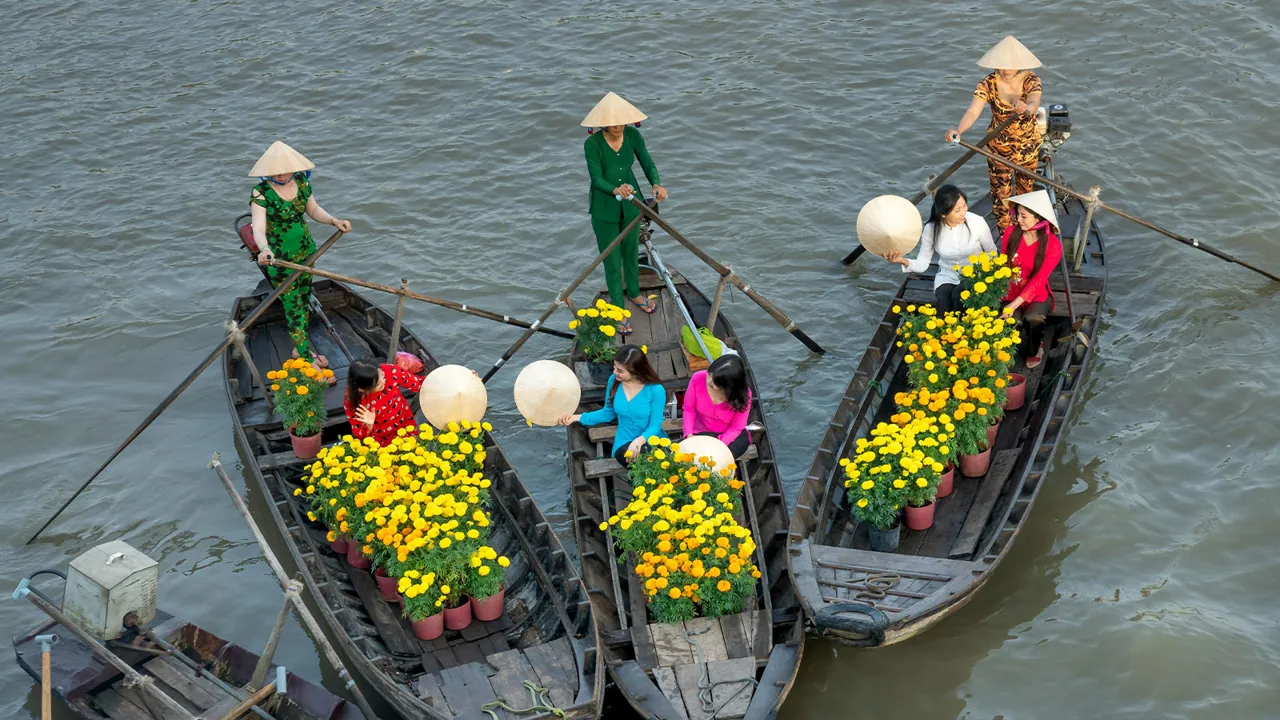




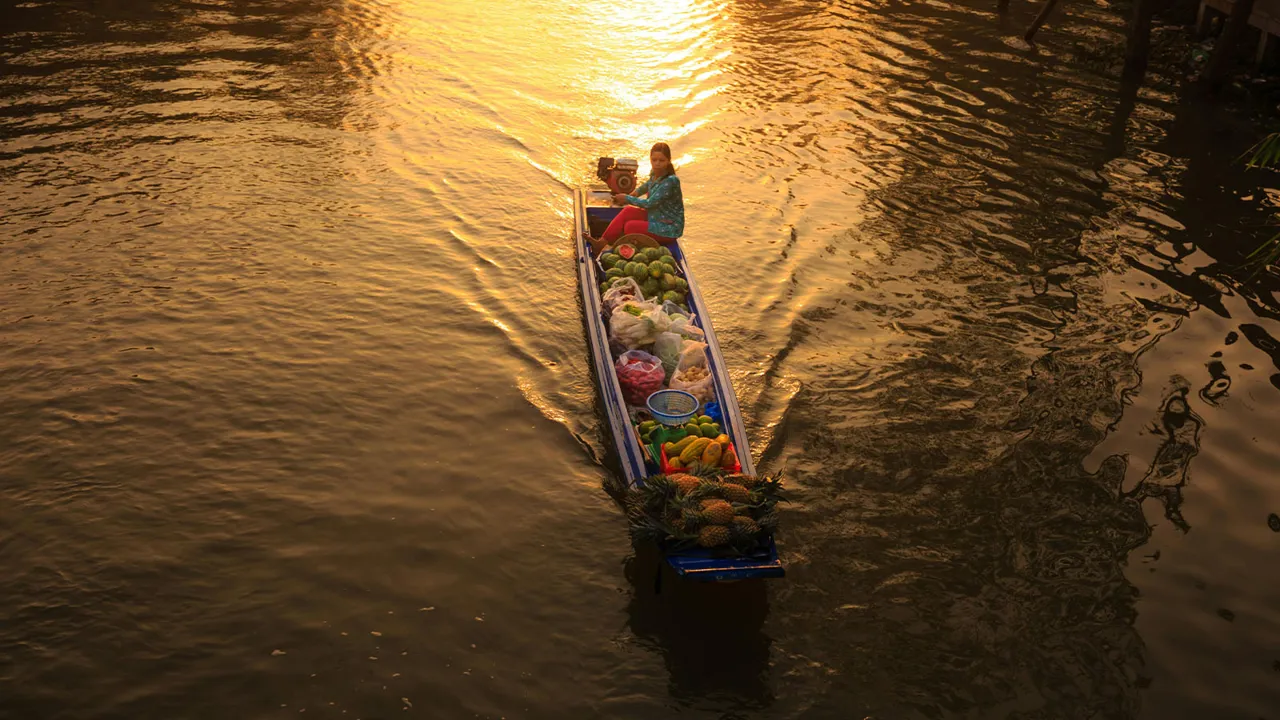
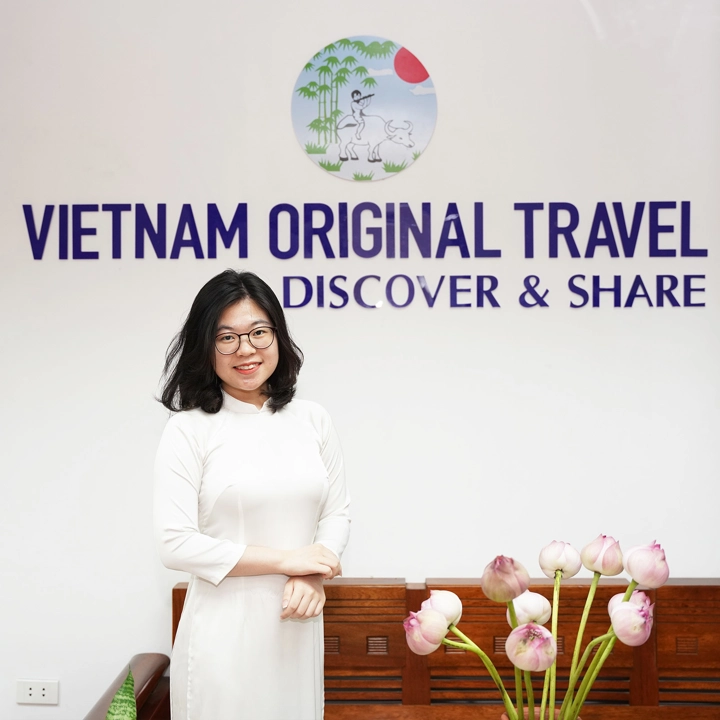

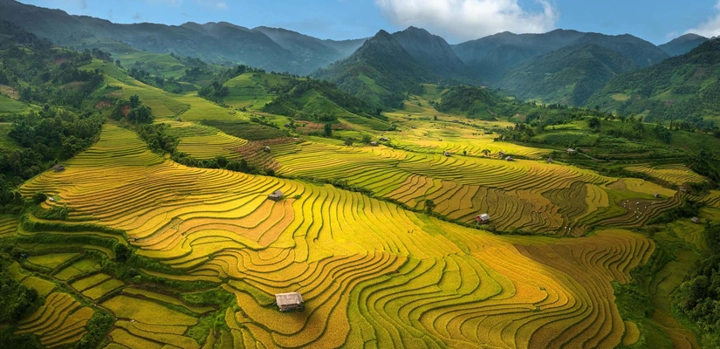

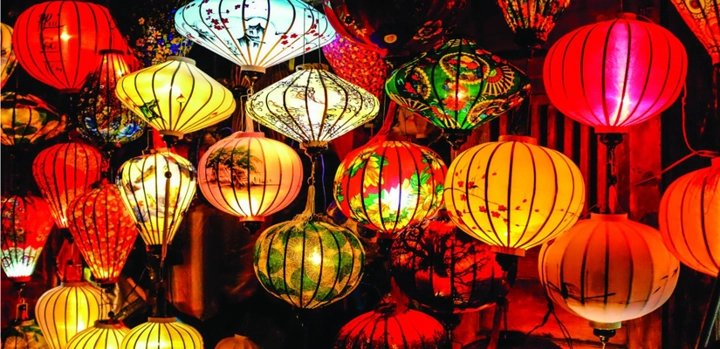





Comment